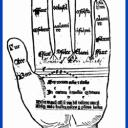Yahoo Answers is shutting down on 4 May 2021 (Eastern Time) and the Yahoo Answers website is now in read-only mode. There will be no changes to other Yahoo properties or services, or your Yahoo account. You can find more information about the Yahoo Answers shutdown and how to download your data on this help page.
Phoney use of foreign versions of orchestra names?
I have noticed a very recent phenomenon - that of calling the Berlin Philharmonic Orchestra the Berliner Philharmoniker. I have even heard the hallowed BBC doing it. Now, I realise, of course, that 'Berliner Philharmoniker' is what Germans call the Orchestra in German, but why have English-speaking people started to do it? Are we to now to refer to orchestras and ensembles by their name in their home language? If so, why are people not referring to (just examples) 'Het Koninklijk Concertgebouworkest' (the Royal Concertgebouw Orchestra), the 'Wiener Philharmoniker' (Vienna Philharmonic Orchestra) or even the 'Российский Hациональный Oркестр' (Rossiiskiy Natsionalniy Orkestr - Russian National Orchestra)?
It smacks very loudly to me of affected pretentiousness to me. What do others think? Have you come across any similar anomalies such as this?
And what about the names of operas and other works? I know that in the USA, nearly all titles are translated into English, although some (eg 'La traviata', 'Il trovatore', 'Eine kleine Nachtmusik' remain in their native languages. How have such inconsistencies arisen, do you think?
Y!A suggested category Yahoo! Mail> Spam and Bulk mail!!
Jack - thopse spelling variations are only caused because Russian names are transliterated from Cyrillic script and so will vary from language to language, according to their linguistic conventions. Even in English we can't agree (Rachmaninov, Rachmaninoff, Rakhmaninov).
i.jones - I'm sure I could never call you 'awkward' ;-)
11 Answers
- 1 decade agoFavourite answer
This annoys me as well. More so because the multiple monikers can confuse and alienate the classical neophyte. And also since I perform a number of classical pieces by modern asian composers for whom the written and spoken language is quite incomprehensible to most of my audience.
I think part of the origin goes back to Wanda Landowski and the rest of the historical performance crowd. If part of the goal was to perform a piece as Bach, or Haydn would have heard it, then it follows that everything else should as authentically original as possible as well. On the other hand (Most of us are not old enough to recall this) there was time in the lat 19th and early 20th century when it was the norm to not just translate the title of an opera, but the entire text as well. Perhaps our current endemic may be left over from that era.
When it comes to titles of pieces I think a more nuanced approach is appropriate. In America I live in a world of people, even among some classical connoisseurs, who mostly speak only English (or at least our americanized version of the language) to say to them "La Fille Du Regiment" would be meaningless. For other operas and pieces that have been ingrained in the repertoire I think it's fine to keep the original language, because that name retains its power to communicate.
- rdenig_maleLv 71 decade ago
I've noticed this also. What annoys me, however, even more than 'Berliner Philharmoniker' (eg) is the 'Engustch' (to coin a phrase) of' Berlin Philharmoniker' which I have occasionally heard. I have heard 'Wiener Philharmoniker', but no-one (to my knowledge) tries the Dutch version of the Concertgebouw. Personally, I find it all a little pretentious and an attempt to be 'PC'
Opera names are something else. It seems that we use (again e.g.) Le Nozze di Figaro and The Marriage of Figaro interchangeably (although in a recent edition of a record magazine I actually saw 'Le Noces di Figaro' - muddling their Mozarts and Stravinskys, perhaps?).Cosi fan Tutte is always given thus as it is really untranslatable. Again, it appears to me that the more difficult the language for English speakers, the more the titles are translated - I wouldn't know what The Love for Three Oranges or The Legend of the Invisible City of Kitzeh are in the originals?
- ILv 41 decade ago
In the case of opera, if the opera will be performed in the original language, it will often be billed in the original language. It will often be billed in English if it is performed in English. Recital programs will generally use the original language. Singer's resumes will use the original language unless the opera was sung in English. In everyday speech, there is no standard practice. Music schools and music teachers generally encourage their students to use the original language titles to increase their comfort with the language.
I don't see a problem with referring to the Berliner Philharmoniker. Perhaps a person owns a CD where the orchestra is billed that way. Perhaps the person has studied with someone who performed with the Berliner Philharmoniker. Maybe they've traveled to Germany. Perhaps they enjoy pronouncing the sounds of foreign languages.
I don't find this as pretentious as a lot of other things.
- Jack HerringLv 61 decade ago
I've never given this much thought. I've noticed for years the different spellings of not only names of orchestras but also the spelling of titles and composer names. I have seen names like Prokofiev and Tchaikovsky spelled in many different ways on album covers. This is not necessarily bad because I have a problem with spelling anyway and if I cannot remember the correct spelling of a name, I can make up my own spelling and no one is the wiser. How great is that?
- mephistophelesLv 61 decade ago
I must admit I've been known particularly when writing to use the alternative "Berliner and Wiener Philharmoniker", probably got into the habit because this is the way I often see them spelled on Deutsche Grammophon recordings.
I have never considered it sounded pretentious?
- MamiankaLv 71 decade ago
I am almost done databasing all my vinyl collection, with the intention of selling it. As I sort thru, I find that I have all kinds of variations of the same player, orchestra, composer, etc. This is hardly DB friendly! It seems that the code numbers have all been purged of decimals (DG), slashes, hyphens, and spaces, all the easier to run searches; but I do not think with nationalistic and historic pride - and xenophobia - that e will EVER agree on spellings and terminology. If people use effete pronunciations as a feeble attempt to impress, then they are soon found out (like wine snobs or bottled water snobs!).
This is unsolvable - we are just going to have to get used to whatever life throws at us. And yes - it is Wanda LANDOWSKA - patronymics take the feminine ending in this case - although with my own maiden name, my generation have given up, and just used -ski on both genders. When speaking Polish and traveling, the switch gets tuned back on in my brain - like people who automatically remember adjective agreement in French, or word order in German or Latin. I have NO IDEA what Michael Scott's point is - the adjective is pronounced with the accent on the second syllable, and for HIM to quibble about spelling?? Really . . . And what is the quibble with pizzacato? pits-a-cah-to - unless one wishes to use peets-ah-cah-toh. Hmm . ..
Source(s): Another Capricorn who databases EVERYTHING - every piece of music I own, CD, DVD, vinyl (finally). - I. JonesLv 71 decade ago
These are things that have never bothered me.
Indeed, it bothers me when the Concertgebouworkest is referred to by the English variant "Royal Concertgebouw Orchestra" since it tries to meld both the English and Dutch and no non-native speaker seems to be able to say "Concertgebouw" properly.
Indeed it would be properly translated "The Kingly Concert Building Orchestra"
... how awkward is that?
- ?Lv 45 years ago
Did your grandmother no longer have a center call?If she did you need to perhaps use that instead.Or why do no longer you employ Jenny as your daughters center call. on the top of the day in case you do not get to call your daughter Jenny it won't make any difference to how plenty you enjoyed your Grandmother so do no longer permit this disappointed you at a time that must be the happiest of your existence. reliable success which includes your toddler :)
- Anonymous1 decade ago
So is it pretentious to pronounce Richard Wagner as Reecard Vogner? This question stinks of pretentious horse manure!
- Anonymous1 decade ago
I've noticed that to, only if Americans (by some rare chance) decide to call it in it's native language they'll "white-en" it up by miss pronouncing or not ever adding in the important accents.
Drives me crazy!







